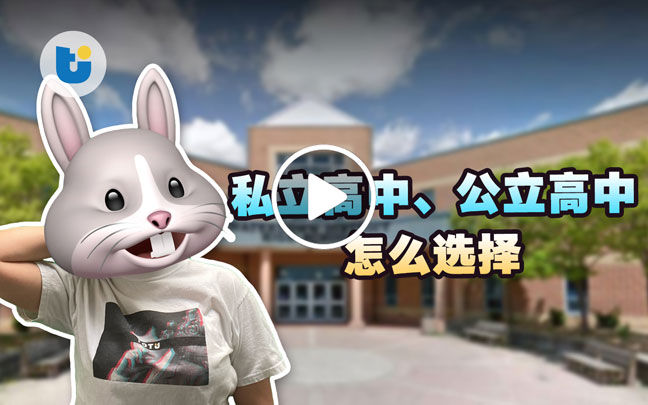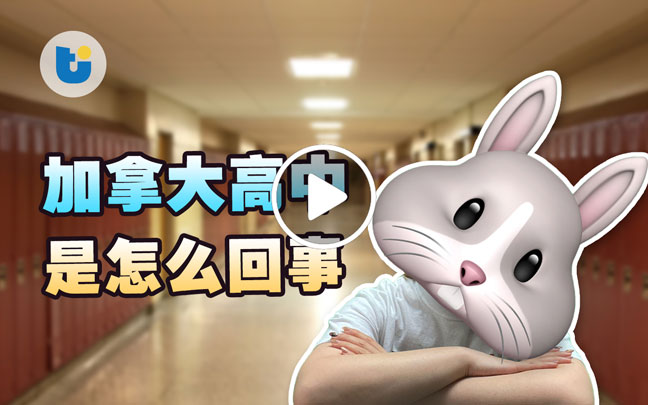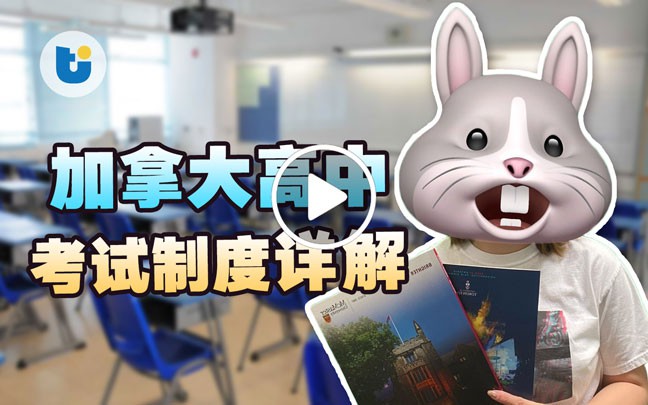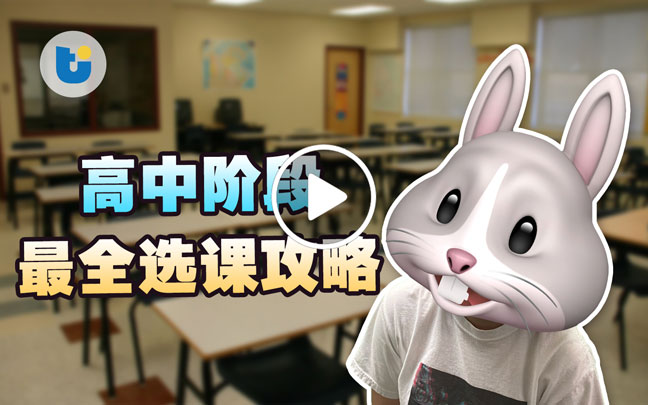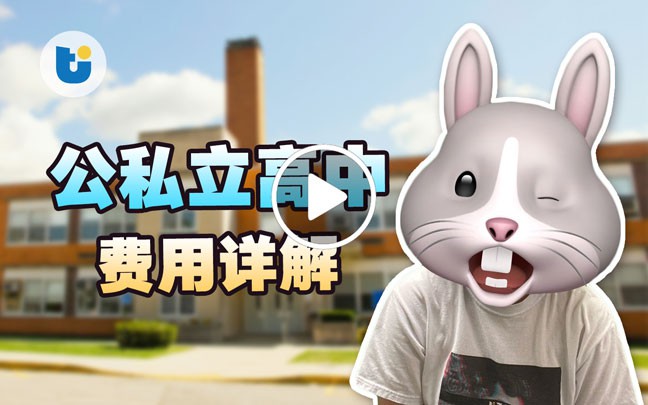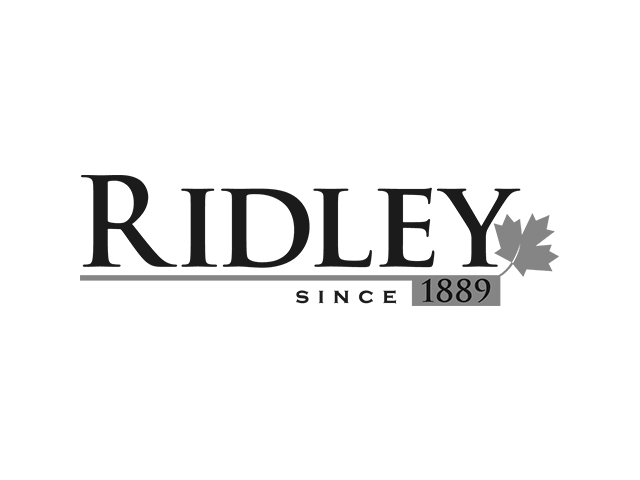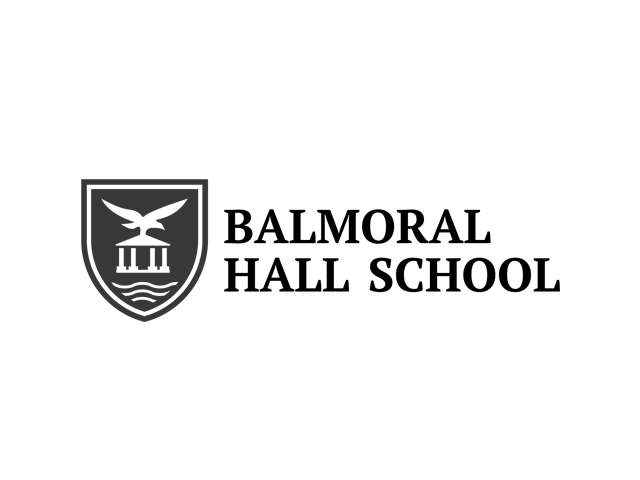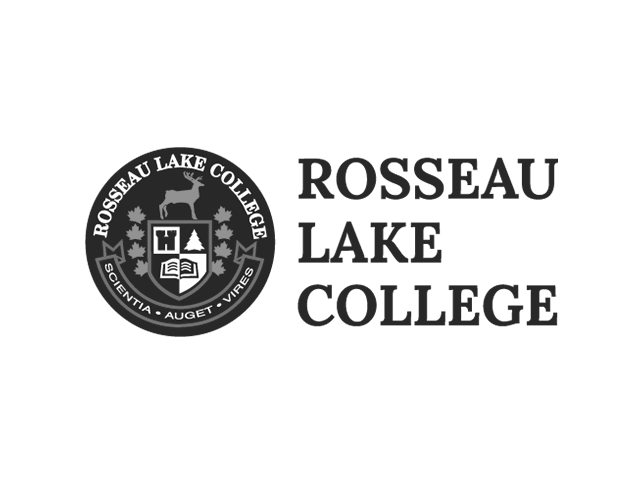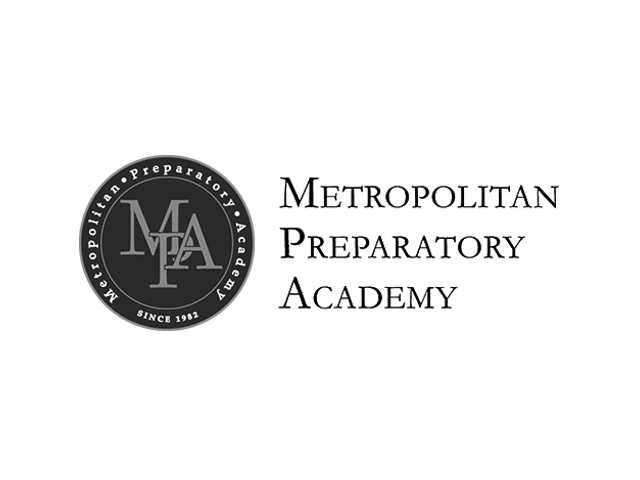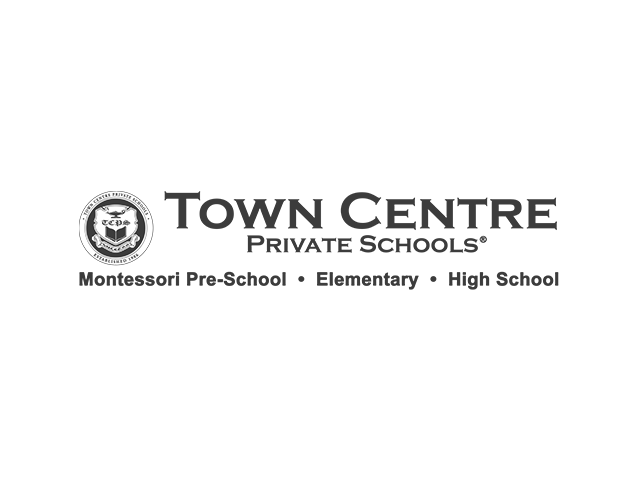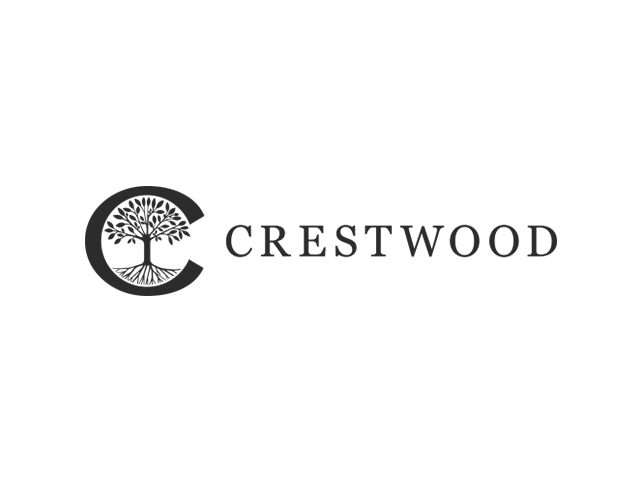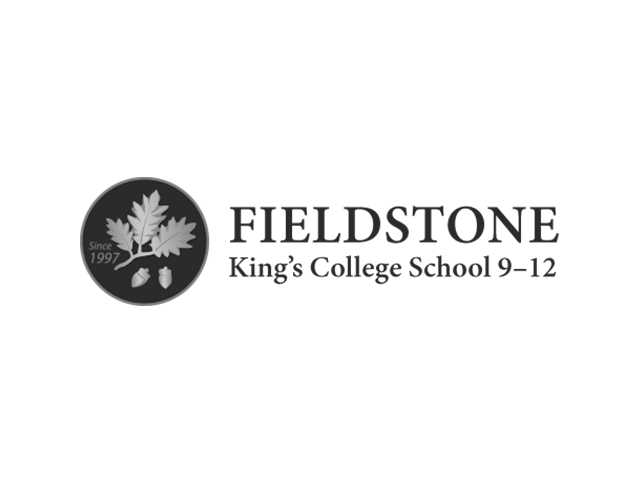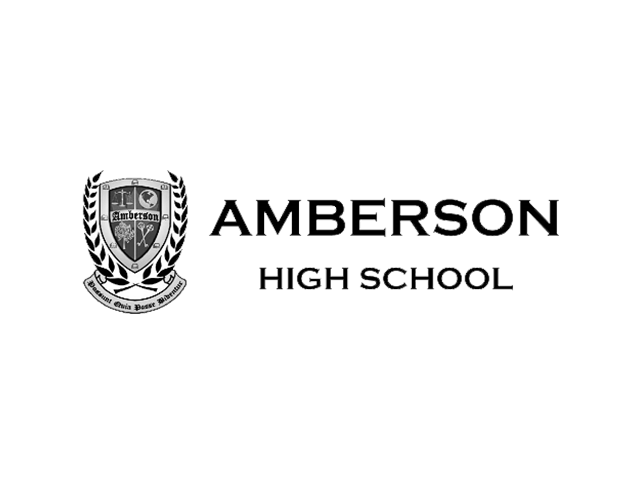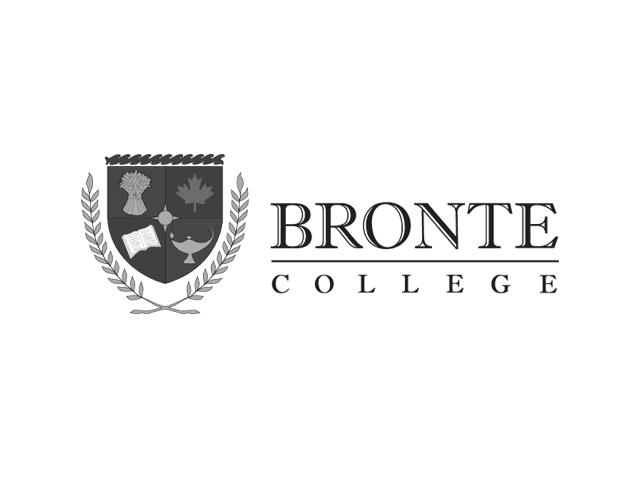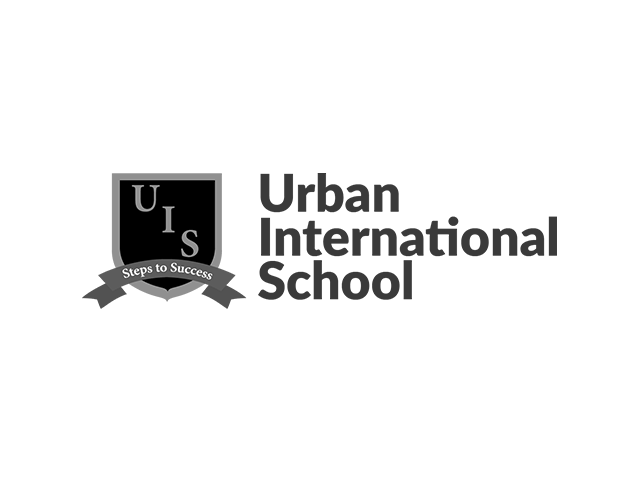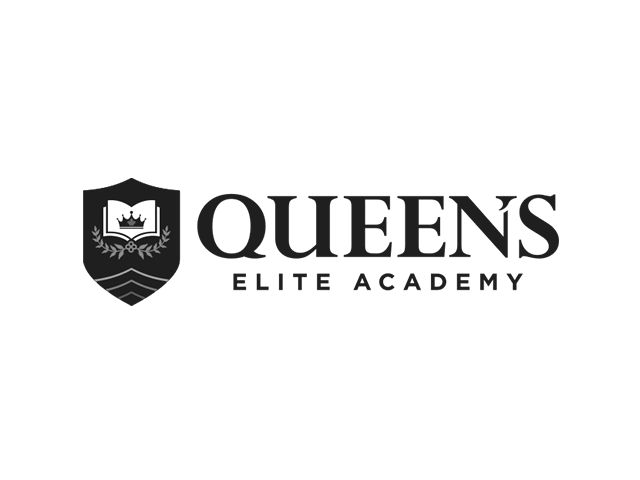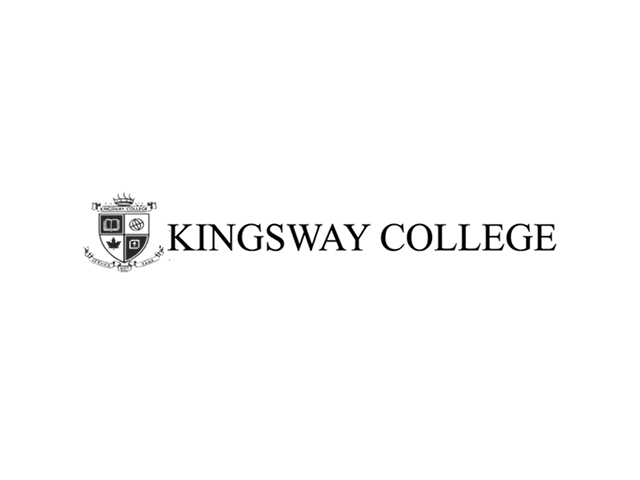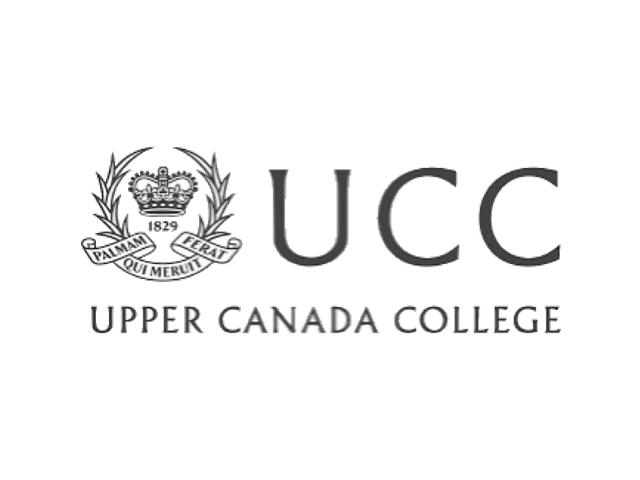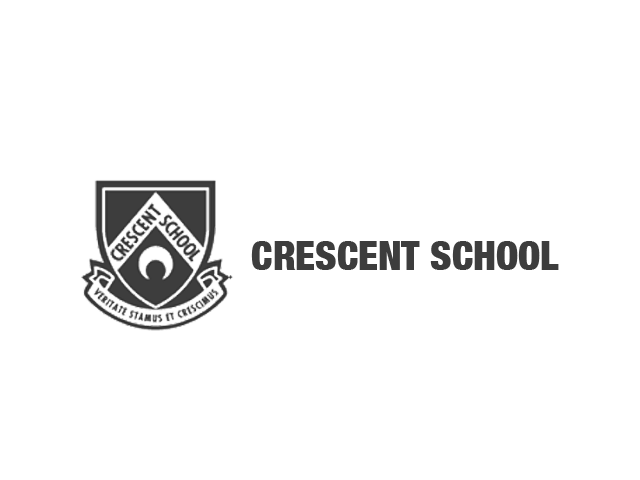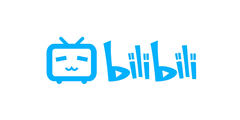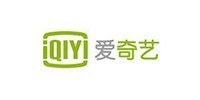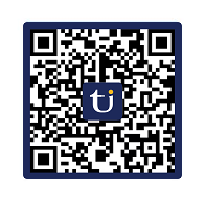加拿大私立初高中申请及转学服务【部分免费】
Why do we offer high quality "free" application services?
UtoCanada Management Consulting Inc.is a professionally qualified, licensed c service provider accredited by the Ministry of Education and Commerce of Ontario, Canada. Our service mainly aims to help international students who have entered Canada and want to study in Canada. After most of our applications, we can apply for commission from the accepting institutionaccepting institutionand obtain government subsidies for our operations and development of our organization. We firmly believe that “our occupation in studying abroad is full of compassion," advocating "clear conscience in our practice!"
We want to minimize the cost of applications for international students, at the same time, allowing our organization to grow. Our team of education consultants team rejects "targeted school selections" driven by profit. We recommend only the best schools and majors for each individual. That is the reason why we choose to provide high-quality "free" application services!
到加拿大读高中的N个优势及若干问题
 It's much easier to finish high school in Canada and apply to one of Canada's top universitiesthan it is to apply directly from your home country. Here are five advantages of finishing high school in Canada before applying to a North American university:
- International students studying in Canada and graduating from high school will benefit the same as local students when applying for universities. There is no need to submit a Chinese college entrance examination or examination results, but only the average score of six Canadian high school grade 12 courses is needed as an assessment of academic level in the application.
- Applying for university or no IELTS score: international students applying to Canadian universities need to provide a valid English score. For example, a minimum required score of IELTS Band 6.5 or TOEFL 85 is needed in order to apply for a bachelor's degree. However, forstudents in Canada who have completed four years of high schoolthe language proficiency scores can be exempt from the application to university, eliminating the need to spend extra time preparing for the IELTS or TOEFL exam.
- The high school education system and North American universities are better correlated, because Canadian high schools have a credit system, the course selections and learning focus of each grade are different.
G9 G10 G11 G12 Course Guide You are "connecting", and gradually adapting to the pace of high school life, focusing on self-displine. You gain understanding of different subjects, look for personal interests, and make preparations for higher grade course selections towards a university major You make efforts in some advanced courses for the first time, and judge where your interests and skills lie so that you decide whether or not to study in an advanced course, thus leading you in the direction of your future university application. "Final Dash" stage for achieving a high 12th-grade average in six courses for your university applications Example Most of the required courses for grade 9 include: physical education, drama, career development, etc. Science, as a compulsory course in grade 10, includes: physics, chemistry, biology and other subjects. After studying science in the 10th grade, I realized I didn’t like it. Instead, I switched to studying business subjects such as accounting, international business, economics and so on.” Relative high school courses are required for university applications in business. Likewise, applying for a science major requires high school courses in physics, chemistry or biology. - Students in grade 11 will begin to courses related to their chosen university major in order to better prepare for their college courses. In addition to studying, there are many extracurricular activities in high school to help international students adapt to Canadian culture as soon as possible and improve their abilities in all aspects.
- Better ability as whole: compared with international students who directly enter universities, those who finish high school and then go to university in Canada have stronger language skills, self-learning ability, better ability to adapt to university life in Canada, and better ability to integrate into the social circle of local students.
- Renewing a visa is easier than applying for one: Canada is notoriously one of the hardest countries to get a visa of any kind. Compared with international students who come directly to university, those who finish high school and then university in Canada need onlyapply for a renewal of their study visa on their previous one, or have it renewed through a licensed immigration lawyerIt is much easier to renew a visa than to apply for one for the first time in China.
Canadian high schools do not have a national college entrance exam like the one in China. Each province in Canada has introduced its own examination system and standards for high school academic standards. In Ontario, for example, students in high schools can take theOSSLTat any time during grades 10 to 12 by theEQAOEQAO is established to test whether students' English reading and writing skills can meet the requirements of Ontario curriculum syllabus after entering high school.Ontario curriculumsyllabus after entering high school.
he OSSLT test takes place annually in late March or early April, and results are given in June of the same year. There are only "pass" and "fail" test results. Students who pass the OSSLT are eligible to obtain theirOntario Secondary School DiplomaAt the same time, students who fail the test only need to take theOntario Secondary School Literacy Course (Course code: OLC4O)which is offered by the school in mid to late June. By completing the course and passing the exam, students will also be able to receive the OSSD for application to university or college.
Click to [learn more] about the Canadian high school examination system
Canada is a nation of immigrants; loose immigration policies in recent years have made it easier for students to study abroad. After completing university or college higher education in Canada, you may obtain a three-year post-graduation work permit. International students can live legally in Canada and work for three years, while having the opportunity to apply for permanent residency.
如果大学时就读一些加拿大It is easier to get immigration approval if you study in a major that is in high demand in the job market in Canada。虽然从读高中到移民,要经历 “高中->学院或大学->工作->移民申请”,也是 3-8 年的时间;但相较于英国、美国和其他欧洲国家,加拿大的移民政策已算是最为便捷的了。
The cost of studying in Canada's middle and high schools is much lower than in other countries such as the United Kingdom, the United States and Europe.The total cost of studying abroad in high schoolsin Canada is around 120,000 to 250,000RMB per year, while in Europe and the United States, it is 160,000 to 350,000RMB. After entering a Canadian university or college, international students can also work legally 20 hours a week in their spare time, not only to earn extra money, but also to expand their social network and gain work experience.
That is to say, studying abroad in a Canadian high school costs a minimum of $20,000 a year, and some more expensive schools may cost $80,000 per year. This huge difference mainly depends on: (1) which province you choose (e.g. costs are higher in Ontario and British Columbia); (2) whether it is a public or private school, as private schools cost more; (3) personal spending habits, and more. These are the main factors that affect the cost of studying abroad.
Click to Watch [Video] to Learn More About the Cost of Studying in a Canadian High School
Canada has the highest GDP spending on public education compared to any other developed country in the world. According to the statistics report, the average GDP of developed countries in the world is 5.9%, while that of Canada is over 7%. Of course, the country’s emphasis on education is not only reflected in the national treasury input, but also in the provided amenities and facilities. In some primary and secondary schools, archery, horse-riding, golfing and even cutting-edge technology are among the school's curriculum options. Schools do everything possible to give students a chance to experience a world beyond the classroom. These have a very important impact on the youth’s understanding of the world and their future development.
Canadian education focuses on training students in practical strategies and skills: Middle school education in Canada focuses on training students in practical strategies and skills; starting from students' practice in daily-living skills to cooperation skills. For example, lessons home economics class teaches students how to cook, sew, use and maintain household appliances, repair houses, and manage a convenience store. The schools also provide special facilities for students to practice. At the same time, secondary school education in Canada also attaches great importance to cultivating students' awareness of creativity and active participation in activities. In class, students are encouraged to learn by themselves and think about the assigned topics. Students are required to do research on the Internet or at a local library to look up materials, write, and submit graphic reports. The exams do not require information memorization; most of the questions are open-ended and require students to think. Teachers motivate students to do things they are interested in, such as activities in design, programming and planning.
Cultivating students' ability coordination and cooperation: Cultivating students' ability to cooperate and coordinate with others is also the focus of Canadian secondary education, which encourages students to express themselves is a public setting. For a project assigned by the teacher, the students discuss ideas together and prepare separately, then they work together to complete the project, and present their ideas to the class. In this process, everyone actively contributes ideas and suggestions in order to get better grades and compete with other groups. This is an effective way to cultivate students' sense of teamwork and sharing of group credit.
The school provides practice for students to adapt to society and improve their skills: In Canada, if children are interested, they can participate in various extracurricular activities at school or volunteer in the community to practice and learn new skills. For international students, by participating in social activities, they not only get the opportunity improve their English, but also to practice their skills in organization and cooperation with others. They can also learn more about the customs and culture of the local society through communication with their peers.
Canada is a multicultural country. Canadians come from different ethnic groups, races, religions and historical backgrounds. This multiculturalism comes from centuries of immigration and, as a result, has created a diverse Canadian society. The Canadian government attaches great importance to the diversity of its population and tries to protect the cultural heritage of its citizens. Through the Canadian Multiculturalism Act, the government encourages Canadians to take pride in their language, religion and culture and to maintain their customs and traditions without breaking any Canadian laws.
As one of the most multicultural countries in the world, Canada embraces a large number of immigrants from more than 100 countries around the world. The influence of different cultures has formed a unique sense of diversity to this country. Cultures live in direct harmony and they respect each other. To this day, Canada is clearly better at ethnic equality than its next-door neighbor, the United States. This harmonious social atmosphere makes it easier for teens from overseas to fit into the local communities. In Canada, people of different skin color, ethnicities and even languages can easily get along. The protection of youth and women and the emphasis on equality without discrimination have always been important issues of discussion and attention in Canadian society.
Planning ahead solves 80% of life's problems – same as your course selections!
Under the individualized education system of Canada, the elective course systemis definitely a challenge for international students, who are used to taking regular level-by-level classes. When high school students enter the 11th or 12th grade, they are often caught off guard by the unexpected "course selection problem". As opposed to the school curriculum in China where students study subjects according to the school curriculum, the course selection system in Canadian high schools is for students to decide on their own. Most schools offer two or three hundred courses, with students choosing different types and levels of difficulty based on their academic level, interests and strengths.
The selection of your grade 12 courses is exceptionally important! It is crucial to your future university or college applications, and whether you can enter your desired university for further study. Success or failure depends on it! "Random selections" will not only waste time, but is also not helpful in achieving an ideal average. Our professional education consultantsThey will guide you to choose your courses at the beginning of grade 11 or 12, depending on your personal preference, parental considerations, strengths and weaknesses, and future development. In terms of course type, course progress, andcourse varietyFrom this perspective, we aim to help you develop the best high school course selection plan.
They always keep the best for themselves. The only thing we can do is to be ready to make immediate changes!
Many students studying in public high schools under a district’s public school board will be surprised to find that the annual course selection season is like a "registration war"; As an international student, the result is always unsatisfactory. There will be many international students around who won't be able to take a U-type courseor a "good course" that is relatively easy. What's more, school teachers may mislead students by telling them that they should give up choosing U-type courses.
It's not hard to understand why, given Canada's relatively limited public education resources, the public education system automatically allocates good resources to "locals"What you should do, is to communicate with our education consultants in time, make timely changes, and actively respond!
I tried my best, but I’m still far from my expectations. I don’t need to be treated kindly. I just want to be treated fairly!
Many students who attend public high schools under the administration of the district school board would complain, "why do teachers give such high grades to locals and such low grades to us? How are we going to apply for university?" Although there are some unavoidable problems such as in language proficiency, cultural differences and adaptability; in some public schools, western teachers do in fact “discriminate” against international students. In the Canadian education system, students rarely just get one shot at their final grade. Do not underestimate the influence of the teacher's "subjective awareness" on your final score!
This kind of problem will be a problem for one’s future university application, affecting their chances of getting higher education. In addition, it can cause certain psychological impact and pressure. What our education consultantscan do is to communicate with you or your parents as soon as possible to solve the problem by "transferring", offering reasonable course selection Suggestions and other means. What you need to do is not to look down on yourself by jumping to conclusions, but to look for alternatives. In fact, to be honest, as long as you choose the right school, want to go to a famous university in Canada, really not so difficult!
When applying for an institution of higher learning in Canada, you do not have the right to choose the application materials you provide, but you can still embellish your application!
For those who have been studying in Canada for many years, IELTS may still be a difficult problemIt is possible for an international student to communicate fluently with native friends, but it is much more difficult to reach the required result in the IELTS. Sometimes, it is not that your English is not good enough, it is that you don't know the "strategies" of taking the IELTS. Actually, there are many methods in solving your language problem. For example…
Our education consultantsassess your situation to develop the most rapid, realistic IELTS improvement plan; through admission for Mature Students、English Waver or other reasonable ways to apply to a university or college for further study without having to submit your English language test scores.
Additionally, almost all higher education institutions in Canada have set up intramural language centresto provide various language learning programs and the opportunity to study professional courses while learning English. Furthermore, in cooperation with a number of qualified off-campus language centresand “double admission" programs; the student can directly take the professional courses upon completion of the relevant language courses.
当然,雅思的提升需要相当的技巧。经验丰富的老师加以指点,搭配正确的学习方法;在短期内提升雅思成绩并非痴人说梦!我们有针对性的,为将目标设定为大学,或学院的同学提供全面的应试语言培训课程解决当务之急。
We expected blue skies, blooming flowers, and fresh air... Turns out we’re in a swamp!
Before going abroad, you imagine your study life to be like this: blond, blue-eyed, courteous classmates, friendly teachers, and a nurturing host family like who treats you like your mom and dad do... However, you would be shocked to find that the western food that your school accommodation provides is actually just pizza; that more than half of the international students in the school have do not speak English at school; and that your host family gives you sandwiches three times a day – plus, they even set a time limit on your showers!
What's more, you might have a mix of "friends" trying to get you to do "bad" things. You do not want to look bad in front of your friends but you are afraid of upsetting your parents if you do. In all, everything is not what you imagined, NOT! AT! ALL! In any case, our education consultants are ready to come to your rescue to solve your dilemma.
Not all the things in this world are like good wine which is better with age. Some things are better done earlier, the sooner the better.
When you went abroad, were you unable to graduate from yourESL course?While watching your old classmates in China, one by one, going off to university, you have now become the oldest in your class. You are starting to feel incompetent and depressed. You lack confidence in continuing in high school...
In fact, you can also apply to university or college if you have not graduated from high school. As long as you areat least 19 years old or at least 21 years old. Our education consultants can help you plan according to your current situation, so you can get out of high school and continue your further studies in university or college.
加拿大初高中转学及公私立择校专区
近些年,中国留学生在加拿大高中阶段转学,已成常态。拜国内众多知名连锁留学中介所赐,众多留学生家长被误导后将子女送到不合适的学校。在就读一至两年,或面临申报大学时才如梦方醒。按转学发生概率,我们做出如下总结简单剖析都有哪些留学生在高中阶段办理转学。
| 转学类型 | 发生概率 | 情况分析 |
|---|---|---|
公立→私立 | 70%~75% | 中国留学生在加拿大初高中阶段的转学,绝大多数发生在 G11~12 年级。即从加拿大公立教育局下辖公立高中,转学至包括顶级 CAIS、西人贵族、大型寄宿、精品走读及名校直通共 5 类私立高中。 并没有看错,这些转学并非像想象的一样,是从以华人留学生为主的私立学校转入高大上的公立学校。而是从众多安省排名 50 的公立学校,转入由华人投资、华人管理、华人留学生占绝大数、在众多宣传中令人不齿且唯恐避之不及的私立学校。无论是否愿意承认,这就是现实情况。本网页的下个部分会对此做出详细分析。 |
私立→私立 | 15%~25% | 由于中国大陆地区留学市场相对混乱、从业人员质素参差不齐,以追求经济利润最大化为导向;大部分国内中介会主推一些在国内线上及线下渠道推广舍得投资,但事实上劣迹斑斑的私立学校。此类学校虽然规模尚可、生源充足,但并未将主要人力、物力及关注点投入教学工作。他们会聘用没有合格资质的教师,这些老师甚至英语都讲不顺溜。学校和中介会夸大宣传,扭曲和滥用“保送”概念来提高收费,利用国内外信息的不对等性来欺瞒留学生及其父母。 其中某些学校已有过多次被加拿大教育主管机构查处的经历,深陷集体诉讼的泥潭。甚至在加拿大很多大学的招生部门“黑名单”榜上有名。这类私立学校一心营销,枉顾教学质量与学生服务。在学生们深有感触时,立即寻求转学就不难理解了。 |
公立→公立 | ≤3% | 公立转公立的情况相对罕见。个别同学会认为自己在公立高中所面临的给分低、选课难、被迫选择只能申报学院的C字头课程、被歧视、排课不合理、ESL 久久不能结课、国际部服务非常拖沓等现象只是个案,是自己人品堪忧造成。所以会提出转入另一所公立高中的诉求。但实际上这并非事实,在深入了解公立高中实际状况后多半会选择转入更加合适的私立高中。 再有就是新移民,通过偏远省份移民项目登陆并获得枫叶卡后,希望到安省或卑诗省生活。新移民子女如果年龄较小,且公立学校对移民子女免费开放,所以选择公立学校就很合理了。 |
私立→公立 | ≤1% | 这种情况极其罕见,在我们平均每年处理的 280+ 初高中转学个案中,比例不到 1%。 例如:在陪读妈妈旅游签转学签获批后,从经济角度出发,让原先就读于私立高中的低领(G10 年级或以下)子女转入公立教育系统就读,以便减免学费。或由于新移民家庭对子女升学、居住地或其他因素考量,选择就读公立学校的 IB/AP 或艺术课程等。 |
基于目前的留学政策与流行趋势,相信选择来加拿大就读初高中成为很多中国家长的首选。但是不难发现,目前在加拿大就读初高中的中国留学生中,大部分具有转学需求。我们在过去的 8 年间,处理了超过 1,700 例初高中生转学业务,此类业务完全是被需求催生的。
拜国内知名连锁各大留学中介所赐,越来越多的中国留学生家长,在不对等信息的误导以及质素参差的国内留学行业从业人员的误导下,千挑万选的为自己的子女选择了并不合适的学校。在各种问题凸显,或面临 G11-12 年级即将升学申请大学时如梦方醒、追悔莫及。点击阅读下面文章,我们将从行业信息不对等性、国内中介寡头垄断、家长典型偏见三方面深度剖析,阐释造成这种普遍现象的原因。
以安省为例,简单对比加拿大公私立初高中的异同如下。
| 私立 | 公立 | |
| 相同点 | ||
| 年级划分 | 高中阶段自 G9~12 年级共 4 年,国内初三等同于加拿大高一 | |
| 毕业条件 | 相同,毕业条件为:完成不少于 30 个学分,加 40 小时义工,通过统考 | |
| 成绩认同 | 公私立中学都认可中国初高中成绩,初三毕业后在安省就读 10 年级可转 8 个学分;中国高一毕业转 16 学分;高二毕业转 22 个学分;高三毕业转 24 个学分 | |
| 语言豁免 | 公私立学校就读非纯语言、连续 3或4 年可免雅思等语言要求申请北美大学 | |
| 不同点 | ||
| 种类细分 | 可分为顶级CAIS、西人贵族、大型寄宿、精品走读和名校直通共 5 类 | 资源平均,无重点与非重点之分;有排名,但参考意义不大 |
| 学校数量 | 250~270 所私立初高中,其中高中 130~140 所 | 750 所公立初高中,分属于 72 个公立教育局 |
| 入学时间 | 因各学校学期设置不用存在差异,可找到满足随时入学的学校 | 每年两次,9 月及 2 月 |
| 申请时间 | 除 CAIS 类顶级私校外,大部分可随时递交申请 | 开学前 10 个月 |
| 学费范围 | CAD$18,000~26,000 | CAD$14,000~16,000 |
| 宿舍概统 | 大型寄宿提供住宿,其他种类多可安排寄宿家庭 | None |
| 校服要求 | 因学校而异,大部分不要求 | 天主教公校基本都要求校服着装 |
| 择校思路 | 根据需求择校 | 根据排名择校 |
在进行公立或私立学校选择时的根本思路如下:
判断条件 | 选择方向 | 原因说明 |
|---|---|---|
低年级 或/且 成绩一般 | 公立 | 低龄留学生不会马上面临升学压力。有足够长的时间去适应加拿大的学习生活、提高语言能力与自立能力、培养良好的社交习惯与独立人格、提升时间管理能力。 对未来进入北美大学,尤其是名校学习打下良好的基础。因此 G9 年级前的留学生可以选择公立或较为顶级、华人比例较少的CAIS类贵族私立。如果考虑性价比,更倾向于公立。 如果成绩一般,且家长没有名校情结,并不执拗于学生未来的是否选择名校。可以考虑入读公立,在公立教育体系中,留学生更加发展全面、社交广泛、身体强健,能够更多的参与文娱活动;当然,也更加轻松。 |
高年级 | 私立 | 如果在 G11 年级或 G12 年级选择留学,此时更多的是考虑升学目标,即如何申报北美大学进入理想的名校。就读高中华人比例如何不应作为首要考量因素。 姑且忽略排名靠前的公立高中华人比例普遍过半的问题,直接进入公立教育体系是否能够立刻适应相对松散的教学与管理模式,就值得家长思考。申请入读好的大学,始终是终极目标! |
成绩好 | 私立 | 学术基础扎实且成绩较好的留学生,都是要冲刺北美排名靠前的名牌大学。私立学校的教学方法、教学节奏、学生服务,以及对国际学生的了解程度,都能更加容易的帮留学生达成目标。 |
结合大量申请案例,我们的 education consultants更加建议华人留学生选择私立。私立初高中对于加拿大本地家庭而言,是在完全免费接受教育,与每年缴纳 $20,000~26,000 加币之间的选择。大量优质私立学校能够长足稳定的发展,固然有其生存的道理和意义;但对于留学生父母而言,是在每年向公立缴纳 $15,000~17000 加币,与私立学校学费之间的选择。在对留学生教育各方面都占据优势的前提下,如非必须压缩留学成本,有什么理由选择公立学校呢?
Learn About Canada's Middle and High School Education System
Canada's education system is roughly the same as China's, with 6 years of elementary school, 3 years (known as grade 1-9) and 3 years in high school (grade 10-12). There are also some provinces where grades 1-8 are considered elementary and junior high, while grades 9-12 are considered high school. Canada's high school education system is under the provincial department of education, so there is no national education system.
In British Columbia, students need to earn 80 credits and pass a provincial exam to graduate. The provincial exam in BC mainly includes a Math Skills Assessment and Literacy Assessment which are important indicators of whether students can graduate from high school. The provincial English test results accounts for 40% of the grade 12 English grade. If the provincial exam results are not ideal, even if you get conditional admission to the university, the university will eventually cancel their offer.
Ontario's high school system is relatively flexible, making it easier for international students to graduate. In Ontario, grades 9-12 is considered high school. Students can graduate after completing 30 credits in high School, passing theOntario Secondary School Literacy Test (OSSLT)nd completing 40 hours of volunteer work. The Ontario provincial examination can be taken at any time in grades 10-12. You are only tested on your English ability and it does not take up a percentage of grade 12 English. If you do not pass the provincial exam, you only need to take one provincial English Coursend pass. A student needs 30 high school credits in order to graduate high school in Ontario – 18 of them are mandatory and 12 are optional; every credit has a minimum requirement of 110 hours spent in each course. In addition, Ontario high school graduates must complete 40 hours of community volunteer work and pass astandardized English reading and writing exam before graduation.。
Click here to learn more about Canada's high school education system.
Because many parents are not familiar with the specifics of the Canadian colleges and the high school education system, they choose inappropriate schools for their children before they going abroad, which leads to the increasingly common phenomenon of high school transfers in Canada in the recent years. Transfers are commonly caused by: schools located in remote areas, bad living environments, safety issues, lack of an English environment, or schools that are tough in grading leading to students not being about to graduate and apply to university in time and so on
If a school transfer is not handled properly, not only will it be a waste of time, money, and energy, but it could also affect the student’s future college applications. Our education consultants will provide professional assistance to students based on their personal preferences, parental considerations, strengths and weaknesses, future development and many other factors. Here are 9 key steps in handling a transfer:
- Analyze of your current situation and problems
- Do an academic evaluation and a language evaluation
- Provide 3-5 alternative schools
- Visit the school
- Check the application date and admission requirements
- Complete the application process or interview (if any)
- Wait for admission notice/invitation letter from the school
- Register at new school and select courses
- Follow up and resolve issues until you get a university or college offer
In fact, high school transfers are not difficult. The hard part is how to find a suitable school, rather than blindly choosing a famous school. We know that every student is unique. Choose the right high school does not take you further away from prestigious universities.
Under the individualized education system of Canada, the elective course systemis definitely a challenge for international students, who are used to taking regular level-by-level classes. When high school students enter the 11th or 12th grade, they are often caught off guard by the unexpected "course selection problem". As opposed to the school curriculum in China where students study subjects according to the school curriculum, the course selection system in Canadian high schools is for students to decide on their own. Most schools offer two or three hundred courses, with students choosing different types and levels of difficulty based on their academic level, interests and strengths.
The selection of your grade 12 courses is exceptionally important! It is crucial to your future university or college applications, and whether you can enter your desired university for further study. Success or failure depends on it! "Random selections" will not only waste time, but is also not helpful in achieving an ideal average. Our professional education consultantsThey will guide you to choose your courses at the beginning of grade 11 or 12, depending on your personal preference, parental considerations, strengths and weaknesses, and future development. In terms of course type, course progress, andcourse varietyFrom this perspective, we aim to help you develop the best high school course selection plan.
The cost of studying in Canada's middle and high schools is much lower than in other countries such as the United Kingdom, the United States and Europe.The total cost of studying abroad in high schoolsin Canada is around 120,000 to 250,000RMB per year, while in Europe and the United States, it is 160,000 to 350,000RMB. After entering a Canadian university or college, international students can also work legally 20 hours a week in their spare time, not only to earn extra money, but also to expand their social network and gain work experience.
That is to say, studying abroad in a Canadian high school costs a minimum of $20,000 a year, and some more expensive schools may cost $80,000 per year. This huge difference mainly depends on: (1) which province you choose (e.g. costs are higher in Ontario and British Columbia); (2) whether it is a public or private school, as private schools cost more; (3) personal spending habits, and more. These are the main factors that affect the cost of studying abroad.
Click to Watch [Video] to Learn More About the Cost of Studying in a Canadian High School
Classification of Canadian High Schools
Canadian Accredited Independent Schools
There is a total of 93 schools of the Canadian Accredited Independent School Association, the best private schools in Canada. These schools provide a pure aristocratic education, as 100 percent of the graduates are admitted into their ideal colleges. Therefore, college enrollment rate is not the schools’ goal. Attention is paid to students’ performance in sports, art, business, etiquette and morality training. In addition to Ontario high school courses, IB, AP and other courses are available. Some schools offer accommodation and tuition for about $30,000 to $60,000 per year. SSAT tests and interviews are required for most applicants.
[Is it right for me?]: This school is suitable for students in high school grade 10 or below who have a solid foundation in English.
What are the designated certification schools of UtoCanada?
- St. Catharine:Ridley College
- Hamilton: Hillfield Strathallan College
- Winnipeg:
Canadian Prestigious Boarding Schools
A small-scale aristocratic private high school that mainly accepts western students from middle- to high-class families. The English-speaking environment is good, with high-quality teaching, and the percentage of admitted into famous universities is as high as 95%. Graduates who enter universities have strong adaptability and low expulsion rates. Some schools offer IB, AP and other courses in addition to Ontario high school courses. Tuition fees range from $25,000 to $35,000 a year.
[Is it right for me?]: This school is suitable for students in high school grade 11 or below who have a solid foundation in English.
What are the designated certification schools of UtoCanada?
- North York:
- Markham: Town Centre Private High School
- Richmond Hill: Century Private School
- Mississauga: Mentor College
- Brockville: Fulford Preparatory College
Large-scale Boarding Schools
In large-scale private boarding high schools, the proportion of Chinese students is relatively high. They mainly run under closed management and provide accommodation to students. This is suitable for the students who have just newly landed students who are more dependant, with a weak English foundation. The teaching methods of this kind of high school is in line with the learning habits of Chinese overseas students and has a high proportion of students entering famous universities. These schools have also signed "direct admission agreements" with some universities in Ontario. Tuition fees range from $25,000 to $35,000 a year.
[Is it right for me?]: This school is suitable for high school students going abroad for the first eim and are to attend school under close supervision by their parents.
What are the designated certification schools of UtoCanada?
- Hamilton: Columbia International College
- Mississauga: Bronte College
- Scarborough: Bond International College
- Downtown: TAIE International College
Commuter High Schools
In medium-sized independent high schools, Chinese-student enrollment ratios varies by school. Such schools often offer special programs such as classes to prepare students for Elite Schools and "Cambridge Preparatory Classes". All the teachers are Ontario Certified Teachers with the OCT certificate, and they also provide counselors for Chinese students. This is suitable for international Chinese students to apply to directly, or for local public-school students to transfer to. Tuition varies greatly from school to school.
[Is it right for me?]: This school is suitable for high school students who have the ability to take care of themselves and improve their average grades through the 12th grade transition.
What are the designated certification schools of UtoCanada?
- North York:
- Scarborough: Toronto International College
- Downtown:
- Thornhill: Westfield Secondary School
Elite University-Preparatory Private Schools
These private schools are small-scale private high schools whose main goal is to enable students to obtain offers from famous universities. Ontario Ministry of Education’s registration schools may have authority to grant credits toward the Ontario Secondary School Diploma (OSSD). Admission time for this type of high school is flexible (you may apply for admission at any time), and the semesters are short (2 months per semester, with 2-3 courses of choice). Tuition is around $1,500 to $2,200 per credit. The emphasis is on attendance and they give relatively inflated grades, which can meet the needs of students applying for targeted universities/colleges.
[Is it right for me?]: This school is suitable for grade 12 high school students who hope to enter an ideal university.
What are the designated certification schools of UtoCanada?
Famous Canadian High Schools
Application Process for Canadian High Schools
无论是首次进入加拿大初高中学习,还是已经身在加拿大本地初高中生,在申请或转学时,可供选择的学校千千万 “适合” 最重要。在咨询初期阶段,申请人需要提供以下基本信息,以便我们的 education consultants们帮助学生及家长进行有效筛。
- 目前就读学校、所在年级、学术成绩
- 何时抵达加拿大、或计划何时进入加拿大留学
- 现阶段英文水平如何,可以提供现阶段英文课成绩,如果曾考过雅思请告知考试时间及分数
- 对于大学的初步规划,目标院校及专业
- 对于新学校的要求;例如:地理位置、寄宿类学校、课后辅导、特殊课程;
只有尽可能多的掌握申请人的基本信息,才能尽可能在择校时与学生资深条件契合。初步了解后,留学规划师会为申请人提供 2~3 所备选学校信息,并进行详细解读。
如果申请人对推介院校并无异议,可根据自己的时间预约留学规划师进行实地/线上校访。在考察的过程中,申请人可与院校招生老师零距离沟通、了解符合自身学习计划的选排课情况,并切身感受学校的学习氛围及就读环境。
校访期间,申请人的责任 education consultants全程陪同,随时为申请人提供记录、传译、接送等必要服务。
考察结束后,留学规划师会再次与申请人详细沟通、权衡利弊,并最终确定申请目标院校。之后根据申请人最终选择的院校提供申请材料清单。所有材料齐全、收集完毕后整理递交。及时与院校跟催申请状态,积极沟通争取尽早获得录取通知。
Must-Read Guide to Canadian High Schools
UTOpedia of Studying in Canada
优途学生感言
Sophia

Emily’s Student
Emily’s Student

Ye,Teng

Amber‘s Student
Amber‘s Student

CICI

Yvonne’s Student
Yvonne’s Student

Terry Hou

Emily’s Student
Emily’s Student

Liuqi,Wang

Amber‘s Student
Amber‘s Student

Yingyi,Huang

Amber‘s Student
Amber‘s Student

YuChen,Wang

Amber‘s Student
Amber‘s Student

Katy

Amber‘s Student
Amber‘s Student

Sherry

Yuki’s Student
Yuki’s Student

Lai,Zheng

Yuki’s Student
Yuki’s Student

Candy

Yuki’s Student
Yuki’s Student

Henry

Roy’s Student
Roy’s Student

Angel Wang

Roy’s Student
Roy’s Student

Wang,Chengru

Amber‘s Student
Amber‘s Student

Yun,Le

Yvonne’s Student
Yvonne’s Student

Frank

Yuki’s Student
Yuki’s Student

Zhang,Haoran

Nicky’s Student
Nicky’s Student

John

Yvonne’s Student
Yvonne’s Student

Frank
Yuki’s Student
Yuki’s Student
Zhang,Yi

Amber‘s Student
Amber‘s Student

Ruixin,Ma

Yvonne’s Student
Yvonne’s Student

Frank

Yuki’s Student
Yuki’s Student

Wang,Haoming

Amber‘s Student
Amber‘s Student

Ruoxi,Zhang

Yvonne’s Student
Yvonne’s Student

Joe

Nicky’s Student
Nicky’s Student

Bonnie

Nicky’s Student
Nicky’s Student


